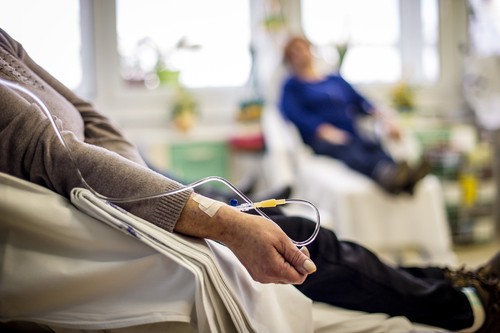Chemotherapy & Oral Health

Cancer and chemo are two C-words that can create a lot of fear, and rightfully so. Cancer as a whole is an incredibly common disease. In fact, nearly 1.8 million Americans will be diagnosed with some form of cancer this year alone, and over 600,000 will die. But thanks to research and medical advancements, cancer treatments and survival rates have continued to improve. Even so, chemotherapy remains one of the most commonly used cancer treatments, and it can be really effective at killing cancer cells. But at the same time, your dentist in Bend knows that chemotherapy can also cause some unwanted side effects to oral health.
Side Effects of Chemo
Some of the most common side effects of chemo are the ones we all tend to think of when we hear the word chemo such as hair loss, fatigue, and weight change. But there are some side effects that aren’t as obvious or as well known that can affect both overall health and oral health alike, including:
- Dry mouth
- Pain while eating
- Difficulty talking or swallowing
- Burning or swelling of the tongue
- Increased chance of infection
As with any medication’s side effects, chemotherapy side effects can vary from person to person.
What’s Your Dentist Have To Do With It?
When many people think of cancer treatment, they immediately think of their oncology doctors. But they should also consider their dentist in Bend as a crucial part of their cancer treatment team. Your dentist can help reduce the risk of chemotherapy’s side effects on oral health and help treat them if they do occur.
- Start Early
Seeing your dentist about one month prior to beginning cancer treatment can help establish a strong base for successful treatment and help reduce unwanted side effects. In fact, a healthier mouth can mean the difference between cancer treatment progressing as scheduled and needing to stop treatment due to infection or other problems. At this appointment, your dental team will conduct an in-depth oral exam, perform thorough deep teeth cleaning, and treat any issues we may find. We’ll also talk about the best at-home oral healthcare routine to keep your mouth healthy during treatment.
- Visit Often
Everyone should see their dentist in Bend every six months, but those undergoing cancer treatment may need to visit more often, especially if they experience any of the symptoms above. After all, the earlier any side effects are treated, the better. For example, if chemo attacks your white blood cells and your body is no longer able to fight off gum disease, your dentist will want to begin treating that infection sooner rather than later and before it has a chance to affect the rest of the body.
If you or someone you know has been diagnosed with cancer, make sure to include your dentist as part of your healthcare team.
